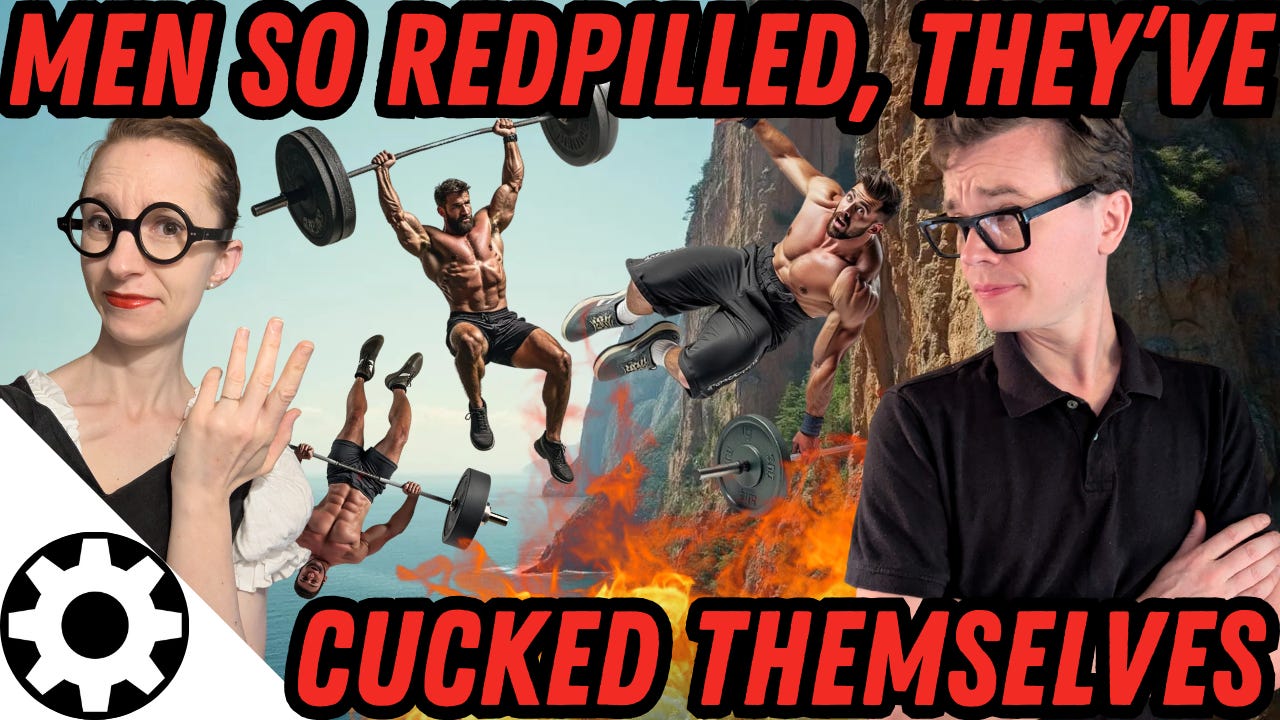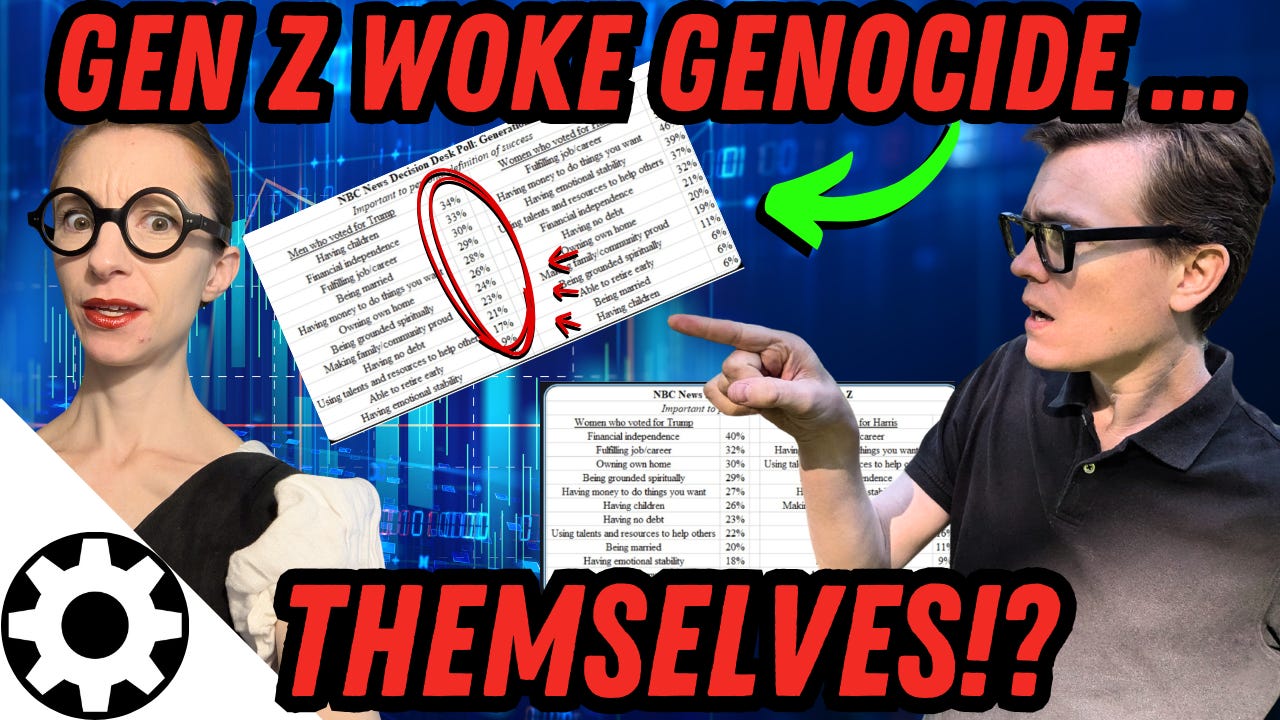New Research Shows UBI Makes Life Worse ... BUT WHY?!
Description
In this episode of Based Camp, Simone and Malcolm Collins dive deep into the latest research and real-world case studies on cash transfers and Universal Basic Income (UBI). They discuss why recent experiments and studies show that cash handouts and guaranteed income programs often fail to deliver the promised improvements in well-being, employment, and poverty reduction. Drawing on examples from Native American tribes, major UBI studies, and historical work programs like the Civilian Conservation Corps, they explore the complex relationship between income, work, and happiness. The conversation also touches on media coverage, policy implications, and the future of social programs in an AI-driven world.
Here Kelsey Piper’s essay in The Argument that we referenced for this episode:
Episode Transcript:
Simone Collins: Hello Malcolm. I’m so excited to be speaking with you today because we’re gonna talk about universal basic income and how even more. Experimentation and research on it has come to light showing that it does not meaningfully change policy outcomes like housing and stress.
It actually decreases working hours. And even though people still anecdotally say that it, oh, it’s so great, it doesn’t actually help them, and this that we’re gonna be covering is coming from someone who really wants. Universal basic income and cash handouts to work or cash transfers as as they would probably put it.
Yeah. So what we’re gonna do is get into this and try explore. So this is not for
Malcolm Collins: people who think this is not the Sam Altman study. We already did an episode on that one, this giant study that showed if you give people a thousand dollars a month, uh uh, over three years, at the end of it, they’re poorer than the people who got nothing.
Well, we have
Simone Collins: to just explore here and going beyond the, the information that we’re gonna go over in the article that shows in various different studies how it doesn’t work. We wanna explore the really key question [00:01:00 ] here of why do these cash transfers fail? But it’s super clear in the data that earning more correlates with better outcomes.
So that’s the other thing. Okay. Hold, before we get into that,
Malcolm Collins: I think it’s very important that we frame for people why this is an important conversation right now. Yeah. And why it is such an existential threat to humanity. Yes. Ubi, I an existential threat AI may replace a lot of people’s jobs. The last time we did a video on when will AI actually replace jobs, the head of one of our programming teams.
Bruno had been the one who sort of asked the question. He’s like, I don’t see people being let go because of ai. I don’t see things changing because of ai. Now, like three months later, the R Fab team is just me, him in ai because it has replaced all of those jobs. That is how quickly is you can go from saying, I have no idea how this is gonna, you know, actually replace workers or actually change the economy to like, just months later and like, oh, this is doing most of my work. Right. And I, I, I, [00:02:00 ] why this becomes so threatening is it’s like, well, how do you maintain an economy around that? And then you have to look at what happens to a population if it’s on UBI Intergenerationally.
Mm-hmm. Right? And you know, you have. Predictions. Like the predictions you get in wally. In Wally, they sort of show, I think an actually pretty accurate prediction of what could happen to humanity, if anything less gruesome.
Wally: Space now. We did that yesterday. I don’t want to do that. Well then what do you want to do? I don’t know. Something.
But over here. Hello.
Time for lunch. In a cup.
. Attention Axiom shoppers. Try blue. It’s the new red. Ooh. Ooh. Lovely.
Malcolm Collins: [00:03:00 ] So if we’re gonna go over some real life case studies here before we go into the data mm-hmm. You have the. Chen Band of Louisiana Indians in California, despite operating one of the largest, most profitable casinos in the US Chenga Resort Casino, generating over 1 billion annually and distributing substantial per capita payments up to $20,000 per member.
Monthly in peak years. Oh wow. Okay. The tribe reported a staggering 91% unemployment rate with the unemployed individuals often living below the poverty line. Wait, so they’re probably
Simone Collins: unemployed ‘cause they feel like their money is taken care of, but there was still in poverty.
Malcolm Collins: Yeah. Well, no, the money comes on Good years.
So they’re not getting this every year. And so they are living in just like existential property. For another example here you have the HoChunk Nation, Winnebago Tribe, Wisconsin and Nebraska. This tribe runs multiple casinos, HoChunk gaming and distributes per capita payments from revenues, historically 500 to [00:04:00 ] $1,000 monthly, varying by year.
Yet their unemployment rate is at around 82% in 2005. It fell though recently in 2022 it fell to 32%, but that’s still six x. The national average was poverty affecting around 30% of members. So I’m not gonna keep going over all of these because there are a number of, of, of examples like this, but it is and we’re probably gonna do a, a separate video just on what happens if you’re intergenerationally exposed to UBI and how much it just FAPs your culture of its potentiality.
Mm-hmm. How quickly high skilled jobs just disappear from communities that this happens to. Ooh. And what it would mean for the human species if we lived with this, but continue.
Simone Collins: Oh, that’s great. Yeah. So what we’re gonna do is go over the article and the argument that goes over all this research called Giving People Money, helped Less than I thought it would by Kelsey Piper.
And then we’re gonna talk about this, like, why is it that, you know, ‘cause you, you would think okay if, [00:05:00 ] you know, having more income. Leads to better outcomes. Why does giving people more income lead to worse outcomes? ‘Cause I think that’s a really key cultural question. So getting into the article, just give people money. It’s the simple brute force solution to so many problems. In low income countries, charities are sometimes measured against whether their interventions are better than simply giving people cash.
Even in high income countries like the US when disaster strikes often the best thing you can do is get money into the hands of affected people. Immediately. They know whether they should use it to buy gas, rent an Airbnb, fly to their cousin’s house. Or one stayed over. So it wasn’t that crazy to assume, particularly once promising pilots were released, that the same should be true for addressing chronic poverty in high income countries.
If you give a new mom a few hundred dollars a month, or a homeless man, $1,000 a month, that’s gotta show up in the debt, right? Alas, a few years back we got really serious about studying cash transfers and rigorous research began in cities all across America. Some programs targeted the homeless, some new [00:06:00 ] mothers and some families living beneath the poverty line.
The goal was to figure out whether sizable monthly payments help people lead better lives, get better educations and jobs, care for more of their children, and achieve better health outcomes. Many of the studies are still ongoing, but at this point, the results are uncertain. They’re pretty consistent and very weird.
Multiple large, high quality randomized studies are finding that guaranteed income transfers do not appear to produce sustained improvements in mental health, stress levels, physical health, child development outcomes, or employment treated Participants do work a little less. But shockingly, this doesn’t correspond with either low stress, lower stress levels, or higher overall reported life satisfaction.
So I’m gonna
Malcolm Collins: stop and, and pull out what’s being said here.
Simone Collins: Mm-hmm.
Malcolm Collins: That when people are like, well. You know, if, if you just gave me more money or I just didn’t have to worry about money so much Exactly. I would be less stressed. Yeah. It’s the money. It’s
Simone Collins: always, it’s the money. It’s the money. I don’t have enough money,
Malcolm Collins: actually.
Untrue. If you earned more [00:07:00 ] money, you would be less stressed. Mm-hmm. Not if you were given more money.
Simone Collins: And this is really key and, and we’ll get into this at the end. Because, yeah, total, total highlight. All right. To continue homeless people, new mothers and low income Americans all over the country receive thousands of dollars, and it’s practically invisible in the data on so many important metrics.
These people are statistically indistinguishable from those who did not receive this aid. I cannot stress how shocking I find this, and I want to be clear. This is not, we got some weak counter evidence. These are careful, well conducted studies. They’re large enough to rule out even some more positive effects, and they’re.
All very similar. No, I wanna, I
Malcolm Collins: wanna stop again here. So the studies on UBI are particularly damning because most of them were done by people who were for UBI. Yes. And tried to frame the data as being as pro UBI as possible.
Simone Collins: Yeah. And that’s, so the a, a big issue with this is that many media outlets, if they cover these at all, they manipulate the results to only like very selectively say [00:08:00 ] that this w
























